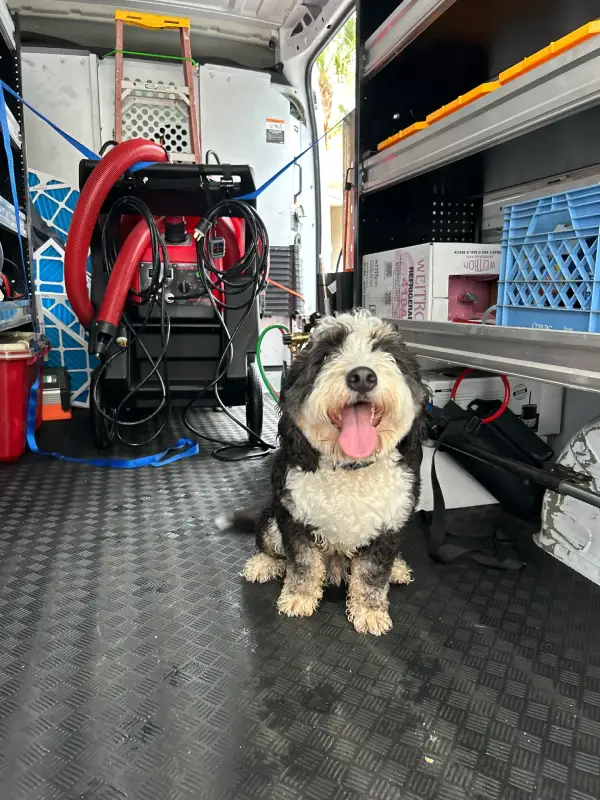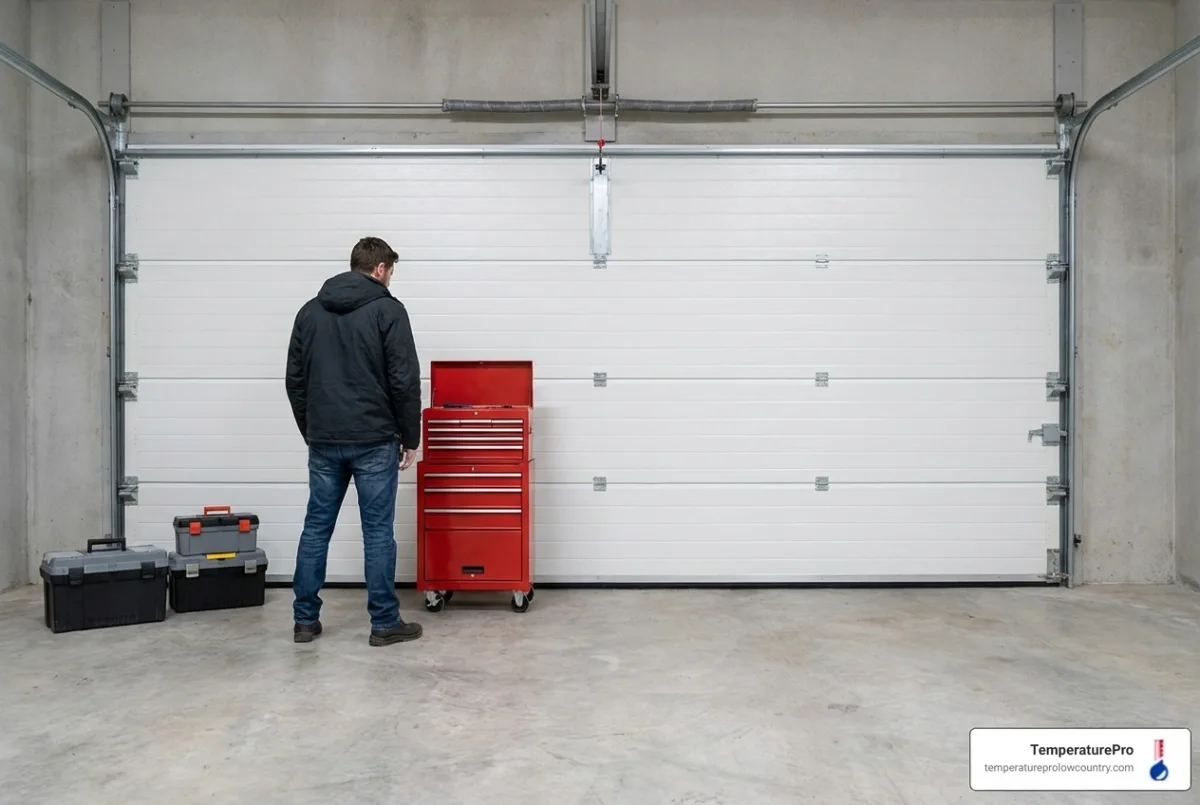

A heater that smells like something’s burning is enough to make any homeowner stop and wonder if there’s a real problem. During the cooler months in Hilton Head, staying warm takes top priority. But when an unusual odor starts coming from the vents, it’s hard to feel comfortable when you’re unsure what’s going on. It might fade after a few minutes, or it might get stronger the longer the system runs. Either way, the last thing you want is to ignore a warning sign of a potential issue.
Recognizing where the smell is coming from and what’s causing it can help you decide whether it's safe to keep using your system. Some smells may be fairly normal, especially when first turning the heater on after months of not using it. But others could signal something has gone wrong inside your equipment and that could lead to damage, reduced efficiency, or even safety risks if left unchecked.
Common Reasons Your Heater Smells Like It’s Burning
Burning smells aren’t always a sign of disaster, but they should never be brushed off. Several everyday issues can cause your heating system to emit odors, especially as seasons shift and units switch back on.
Here are some of the most common reasons your heater might smell like it’s burning:
1. Dust Burn-Off
This is one of the most typical causes and often happens when you use your heating system for the first time in months. Dust builds up on the heat exchanger and other parts inside your unit while it's sitting unused. Once you turn it back on, that dust burns off quickly and creates a temporary burning smell. It should fade after a few minutes. But if it stays or returns often, there could be a deeper airflow problem inside the unit making the system heat up more than it should.
2. Electrical Issues
If something inside your system is overheating or if wiring is frayed, it can burn and create a strong, constant smell. These issues may cause parts to break down faster or even damage your electrical system. A burnt plastic or fishy smell can be signs of melting wires, burnt motor coatings, or a bad connection. These kinds of problems need to be checked right away.
3. Debris Lodged Inside
Sometimes, items like small toys, insulation, pet hair, or even nesting rodents find their way into vents or ductwork. When these items come into contact with heated parts, they can burn and release a bad odor. This type of smell might be a little hard to place at first, but it usually intensifies as the heater keeps running.
4. Dirty or Clogged Air Filters
Air filters need to be replaced regularly. If you go too long without changing them, they clog up and restrict airflow. This leads to overheating inside the furnace, which can cause a dusty or hot smell. In some cases, if the filter is dirty enough, it may trap particles that emit a burnt odor when exposed to heat. If you’ve recently adjusted your thermostat but the filter hasn’t been changed in months, this could be contributing to the issue.
An example we've encountered in Hilton Head involved a homeowner who noticed a strong, hot smell in one section of the home every time the heater kicked on. Once our technicians inspected the unit, they found the return air vent packed with pet fur and a nearly collapsed filter. The restricted flow caused heat to build in the system and carry that burning smell into the ductwork each time it started up.
Understanding what's causing the smell doesn't solve the issue on its own, but it does help you figure out whether it's a short-lived problem or something requiring attention right away. The next step is knowing how to recognize when that burning odor is normal and when it’s not.
When to Be Concerned About a Burning Smell
Some heating odors are harmless and go away on their own. Others stick around and point to something that needs fixing. Knowing the difference can help keep your heater working safely and your home in Hilton Head protected from avoidable issues.
There are three warning signs to watch for:
- The smell doesn’t go away – A short-term burning smell when you first turn the heat on isn’t usually a problem. But if the odor continues past the first few cycles or comes back regularly, this could mean the system is struggling with circulation or an internal part is overheating.
- It smells like burning plastic or metal – A musty or dusty smell usually comes from normal dust burn-off. If what you’re noticing smells more like plastic, rubber, or chemicals, that’s more serious. These can be signs that a component is melting or overheating behind the panels.
- Something feels unusually hot – If the furnace housing or vents feel overly hot to the touch, or if you notice warmth in a part of your home where there normally isn’t, these are signs that heat isn’t circulating like it should. Too much trapped heat inside the system can damage the unit over time.
If any of these seem familiar, turn the heat off and wait for the system to cool down. Avoid running it again until it gets checked out by professionals. Skipping this step could lead to further damage or, in rare cases, safety risks like electrical shorts. Acting early can keep a minor fix from turning into a larger and more expensive repair.
How Our Technicians Tackle Heating Smell Problems
When you call for heater repair in Hilton Head, our professionals approach the issue with a full inspection. Their first step is identifying the exact source of the smell. Many homeowners assume it's only dust burn-off or filter problems, but odors may come from deeper inside the system or even from something lodged in your ductwork.
Common solutions include:
- Inspecting heat exchanger surfaces and internal components for burnt residue or corrosion
- Verifying all wiring connections are secure and not showing signs of melting or scorching
- Replacing worn-out blower parts or malfunctioning motors
- Swapping out clogged air filters and recommending the correct size and type moving forward
- Cleaning or realigning ductwork sections that may have airflow restrictions or foreign objects inside
Diagnosis matters. A deeper problem left unchecked can reduce efficiency and make your heater work harder than it should. In one case, a homeowner in Hilton Head called about a faint smell that got stronger each night. After inspecting the unit, our technicians found the insulation inside the blower compartment was breaking down due to improper heat cycling. The problem wasn’t visible from the outside and would’ve taken months to discover without a proper inspection.
Preventive maintenance helps cut down on problems like these. Sometimes a yearly tune-up is all it takes to keep your system running odor-free. Our technicians can identify parts that are wearing out before they break down, test for weak airflow, and ensure nothing is trapped in the system that could burn off when the heat is on again.
Don’t Ignore the Signals Your Heater Is Sending
If your heater has started emitting strange smells, it’s a good idea to pay attention sooner rather than later. Even if the system is still running, odors are usually a sign that something inside isn’t working like it should. Whether the issue is dust buildup or something more serious like melting electrical parts, addressing it early is often the safest and most cost-effective path.
Living in Hilton Head means your heater isn’t always running year-round. That makes it even easier for small problems to go unnoticed until the first cold snap hits. With regular inspections and fast response when issues pop up, you can help ensure your home stays safe and comfortable through the cold season. Don’t let an unusual smell be ignored. It’s often your system’s way of telling you help is needed.
If you notice a burning smell coming from your heater, now is the time to let experts take a closer look before any damage occurs. TemperaturePro Bluffton understands that homeowners in Hilton Head deserve a safe and efficient heating system, and our professionals are ready to step in when issues arise. If you require heater repair in Hilton Head, you can count on us to thoroughly inspect your system, address potential risks, and restore comfort to your home. For a quick estimate or to book a service visit, please contact us today.

Financing











.webp)








.avif)
